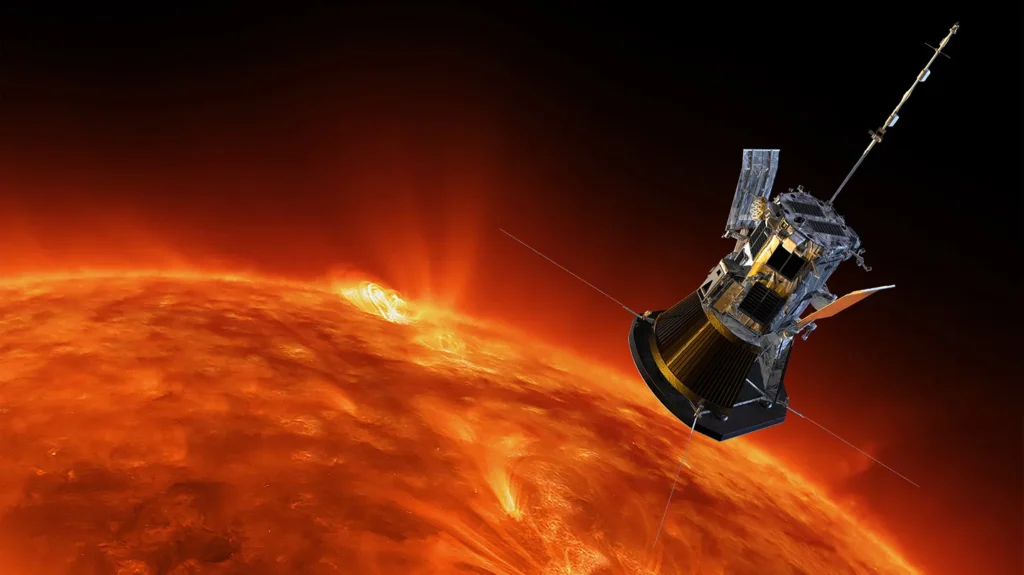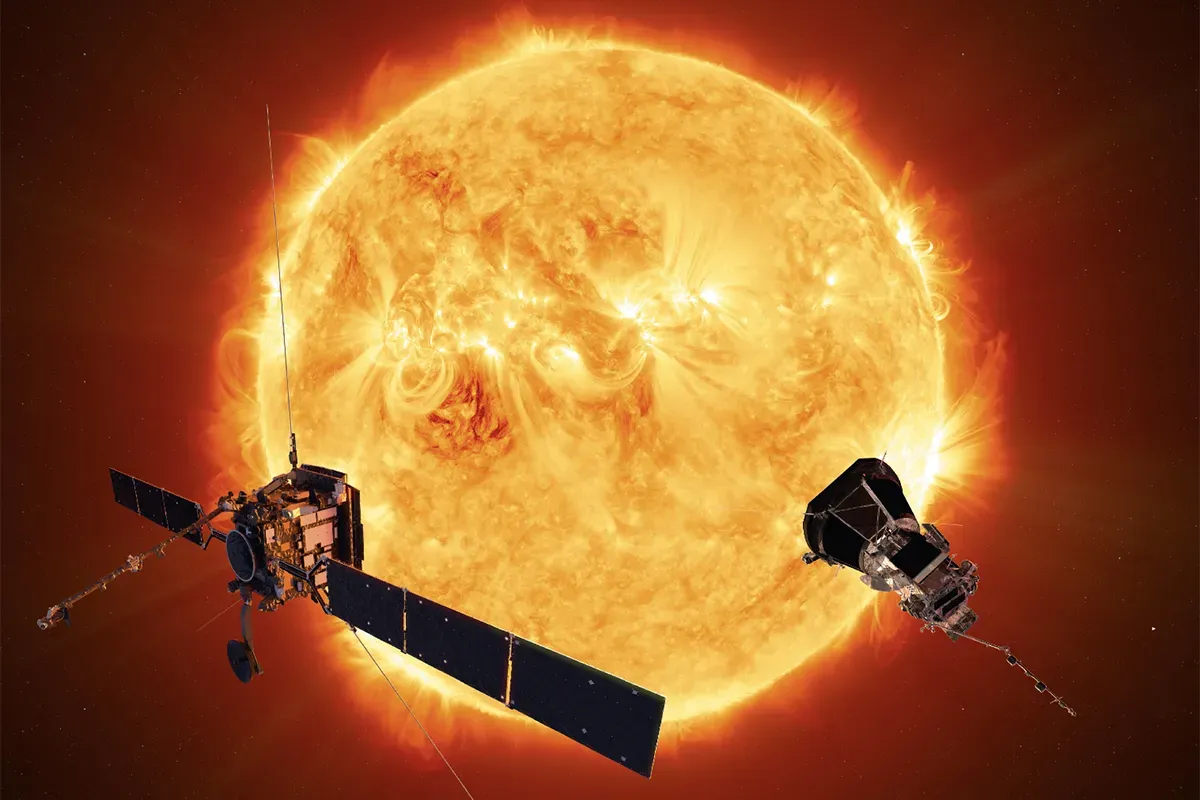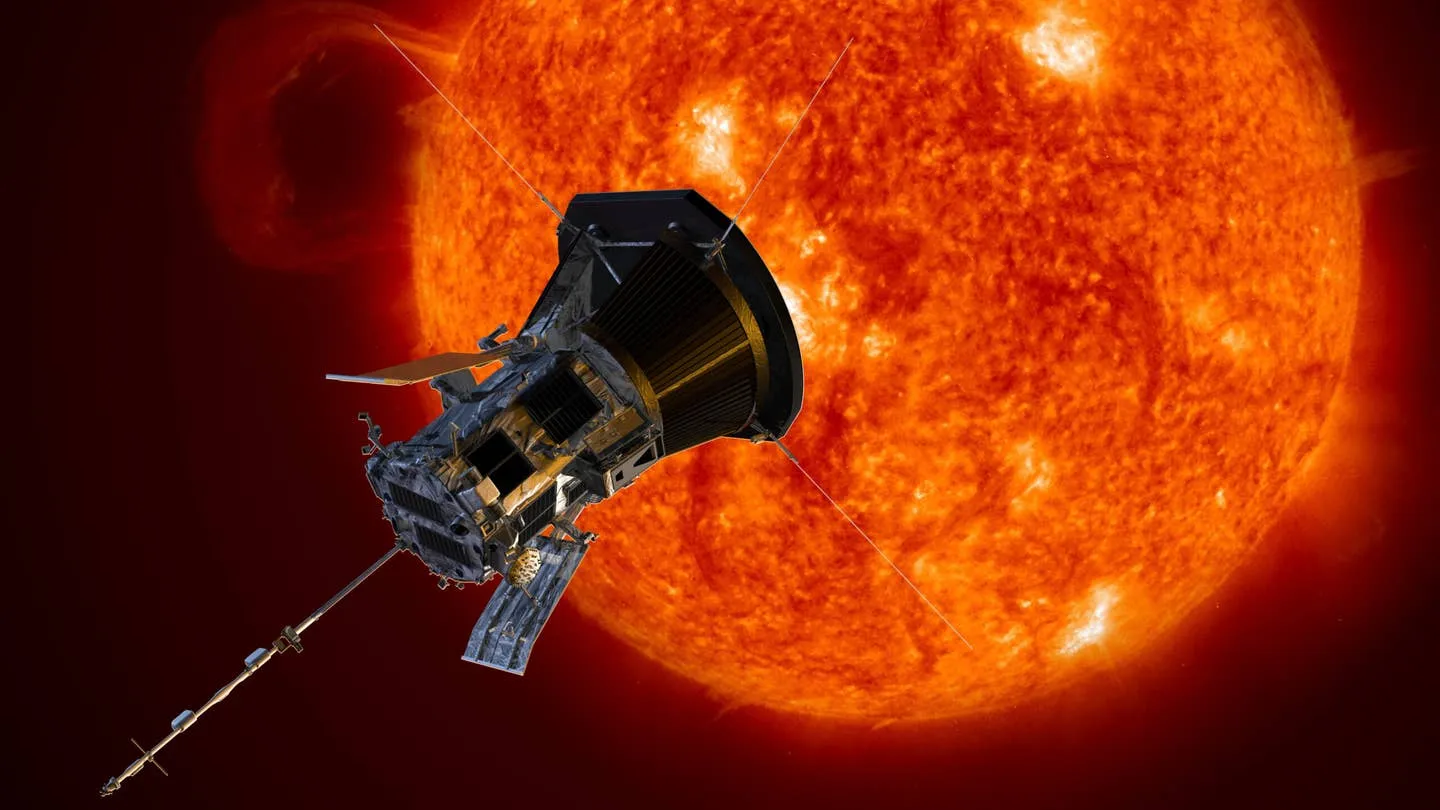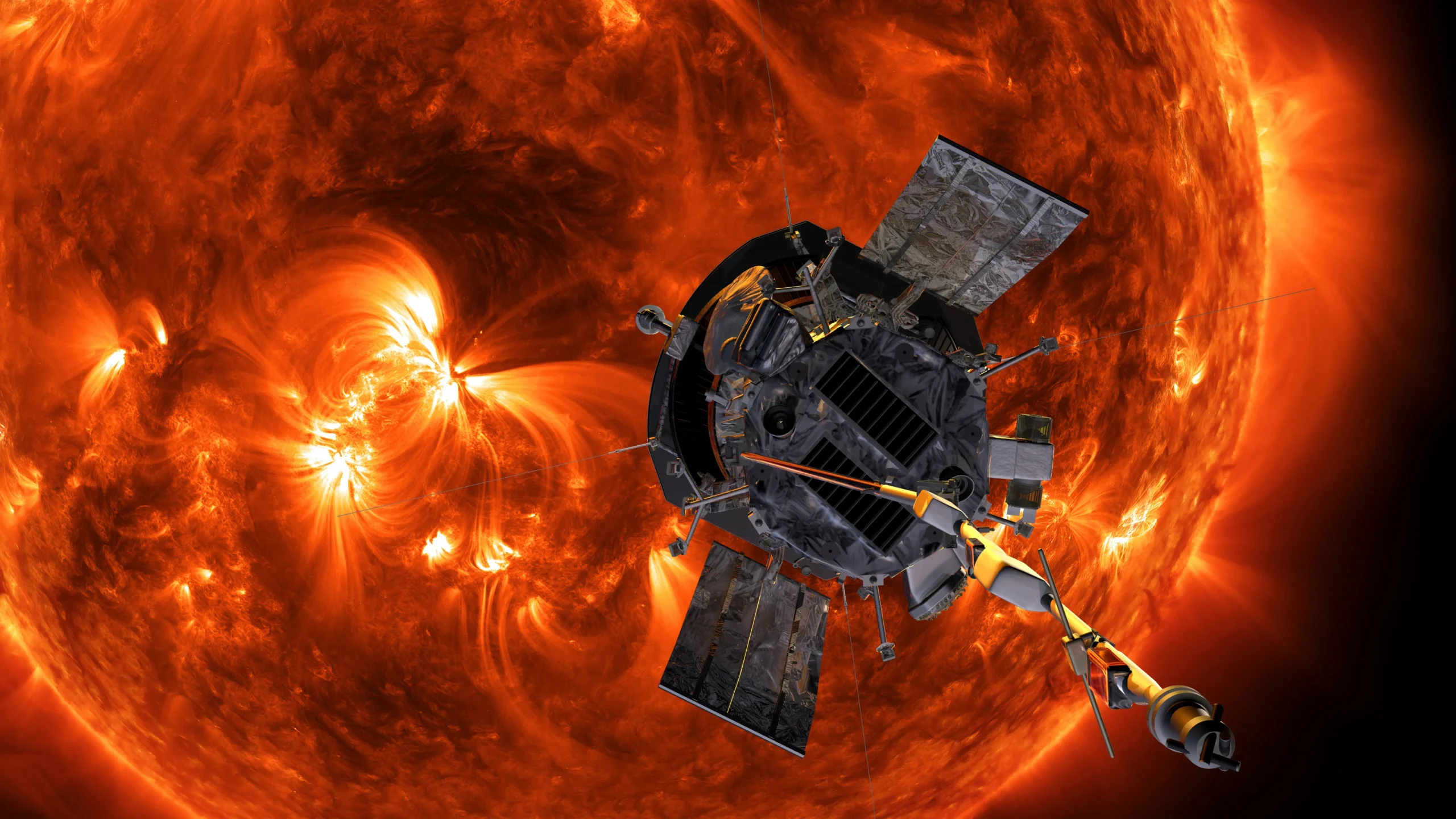
In a feat that echoes the mythical flight of Icarus, NASA’s Parker Solar Probe has achieved a groundbreaking milestone in space exploration by coming within 3.86 million miles (6.1 million kilometers) of the Sun’s surface. This audacious venture not only sets a new record but also marks the probe as the closest human-made object to the Sun, surpassing all previous endeavors.

The Historic Journey to the Sun
Launched on August 12, 2018, the Parker Solar Probe’s mission has been nothing short of historic. Traveling at a mind-boggling speed of up to 430,000 miles per hour (692,017 km per hour), the probe withstands extreme conditions, facing temperatures as high as 1,800 degrees Fahrenheit (982 degrees Celsius). Its journey through the Sun’s outer atmosphere, or corona, is designed to provide unprecedented insights into our closest star.
As the probe slices through the corona, it helps scientists gather critical data that could unravel many of the Sun’s mysteries. The probe’s resilience in such inhospitable conditions is a testament to the ingenuity and forward-thinking of NASA’s engineering.

Unveiling Solar Secrets
The Parker Solar Probe’s close encounters with the Sun, which now number 22, are part of NASA’s larger goal to push the boundaries of human knowledge about space. “This is one example of NASA’s bold missions, doing something that no one else has ever done before to answer longstanding questions about our universe,” said Arik Posner, NASA’s program director, in an interview with Earth.com.
Each orbit brings the probe closer to the Sun, allowing it to collect vital data on solar particles and magnetic fields. This information is crucial for improving our understanding of solar weather events that can impact life on Earth.

Challenges and Triumphs
Despite its proximity to the Sun, communicating with the Parker Solar Probe presents significant challenges. Currently, scientists are unable to make direct contact with the probe due to its close solar approach. However, they eagerly anticipate a beacon tone, expected on December 27th, which will confirm the probe’s operational status and survival through its perilous journey.
